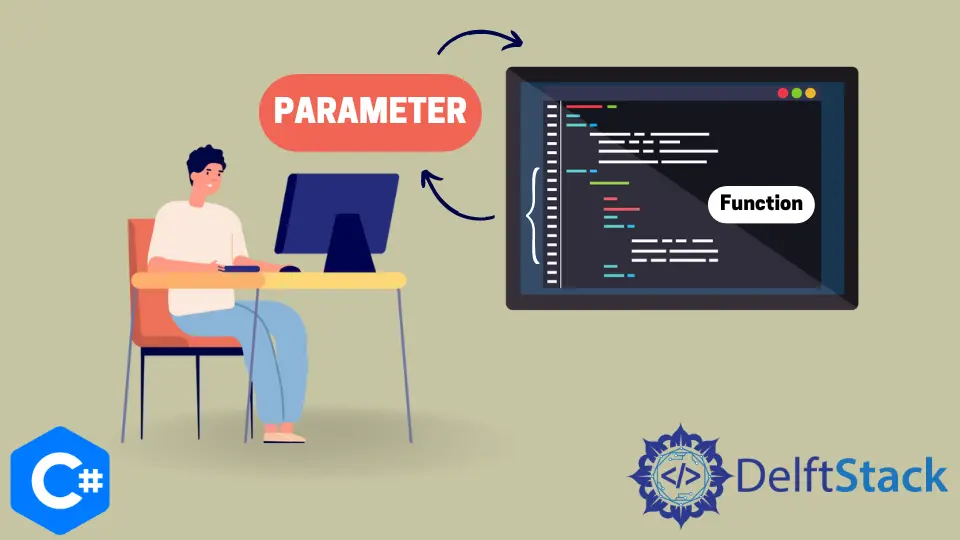How to Pass a Function as a Parameter in C#
-
Pass a Function as a Parameter With the
Func<>Delegate inC# -
Pass a Function as a Parameter Inside Another Function With the
Action<>Delegate inC#

This tutorial will introduce methods to pass a function as a parameter inside another function in C#.
Pass a Function as a Parameter With the Func<> Delegate in C#
The Func<T1, T-return> delegate defines a function with T1 parameter and T-return return type in C#. We can pass a function as a parameter inside another function with the Func<T1, t-return> delegate. The following code example shows us how we can pass a function as a parameter inside another function with the Func<> delegate in C#.
using System;
namespace pass_function_as_parameter {
class Program {
static int functionToPass(int x) {
return x + 10;
}
static void function(Func<int, int> functionToPass) {
int i = functionToPass(22);
Console.WriteLine("i = {0}", i);
}
static void Main(string[] args) {
function(functionToPass);
}
}
}
Output:
i = 32
We defined the function functionToPass(int x) which takes an integer value as a parameter, increments it with 10 and returns the result as an integer value. We passed the functionToPass() function as a parameter to the function() function with the Func<int, int> delegate. We passed the value 22 to the functionToPass() function inside the function() function. In the main function, we called the function with function(functionToPass) function call. The Func<> delegate can only be used to pass the functions that return some value.
Pass a Function as a Parameter Inside Another Function With the Action<> Delegate in C#
If we want to pass a function that does not return a value, we have to use the Action<> delegate in C#. The Action<T> delegate works just like the function delegate; it is used to define a function with the T parameter. We can use the Action<> delegate to pass a function as a parameter to another function. The following code example shows us how we can pass a function as a parameter inside another function with the Action<> delegate in C#.
using System;
namespace pass_function_as_parameter {
class Program {
static void functionToPass2(int x) {
int increment = x + 10;
Console.WriteLine("increment = {0}", increment);
}
static void function2(Action<int> functionToPass2) {
functionToPass2(22);
}
static void Main(string[] args) {
function2(functionToPass2);
}
}
}
Output:
increment = 32
We defined the function functionToPass2(int x) which takes an integer value as a parameter, increments it with 10 and prints the result. We passed the functionToPass2() function as a parameter to the function() function with the Action<int> delegate. We passed the value 22 to the functionToPass2() function inside the function2() function. In the main function, we called the function with function2(functionToPass2) function call. The Action<> delegate can only be used to pass the functions that do not return any value.
Maisam is a highly skilled and motivated Data Scientist. He has over 4 years of experience with Python programming language. He loves solving complex problems and sharing his results on the internet.
LinkedIn